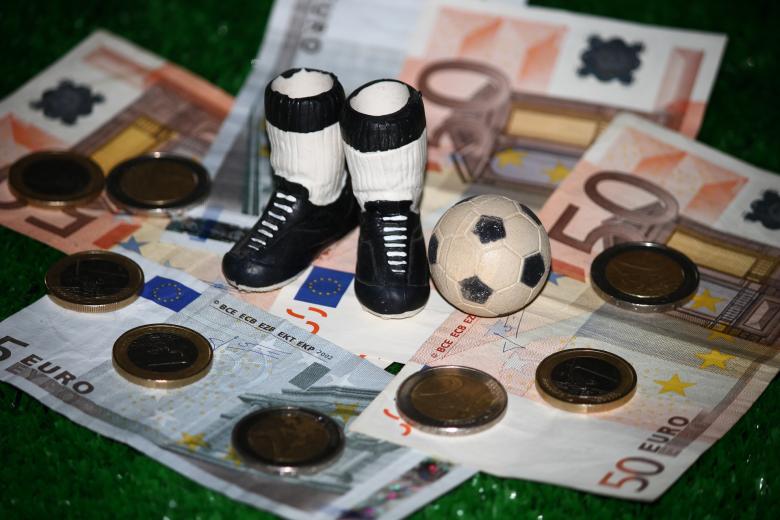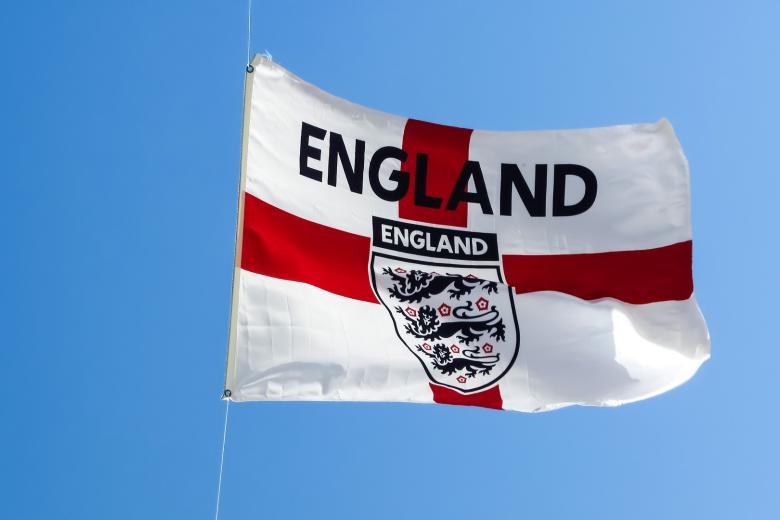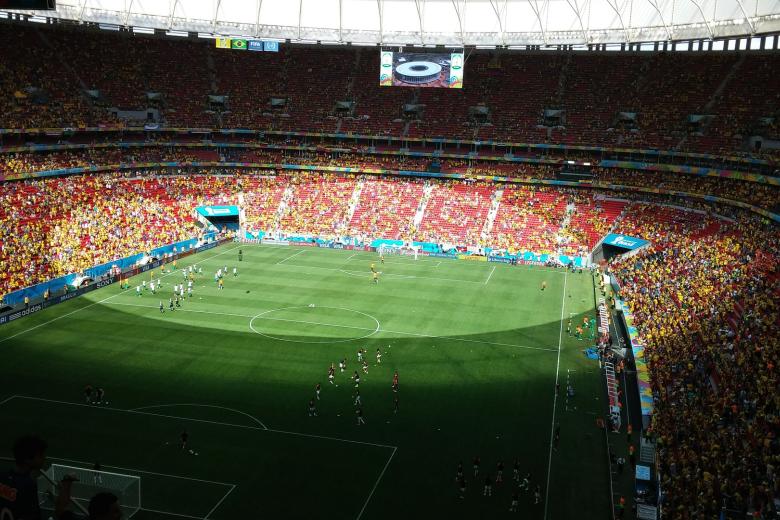The Netherlands report, corrupting football (part 5)
Researched and written by Marije Ariëns. For the clubs, accepting foreign investments means more possible room for improvement of the club and more successful transfers. However, it also means there will be less insight into where the money that finances these improvements comes from and through this, a larger risk of inviting crime into the world of Dutch football.
‘I want to be part of the Roda family’ said Aleksei Korotaev in January 2017. At the beginning of this year he bought a number of shares of the Dutch football club Roda JC. How does a Swiss international banker and a resident of Dubai develop an interest in being a shareholder of a relatively unknown Dutch football club? Perhaps more importantly, what does this mean for the club and its fans?
In the past years, the Dutch football scene has slowly been crowded by foreign investors buying up shares of football clubs. Just to offer a handful of examples, in 2016 a Turkish investor Istian Gun invested in Club Fortuna Sittard, in the beginning of 2015 a Chinese investor Wang Hui bought shares of Club ADO The Hague, and in 2013, a Russian investor Aleksandr Chigrinski invested in Club Vitesse.
The uncomfortable pairing of crime and sports is a topic that often seems to be neglected in research or regulation. One possible explanation for this is the strong feeling of joy or the sense of solidarity that sports can inspire in people, and perhaps – at least in theory – to regulate an investment that would enhance the level of people’s joy or solidarity is seen by many (especially the fans) as an unwanted intrusion by the regulatory authorities.
Does a foreign investment into a Dutch football club, such as the ones explained above, imply immediate negative consequences such as money laundering or fraud? No. Foreign investments can in fact be a saviour for clubs that have financial problems, want to grow beyond their current reach or simply aim to create more attention for and possibilities within the beautiful sport of football. This article aims not to define all foreign investments into Dutch professional football clubs as criminal activity, or instil fear for the unknown investor in the loyal fans of the football clubs. Contrarily, it aims to explore the options these football clubs have to uphold a strong financial integrity and through this support the growth of football as one of the Netherland’s most popular sports.
Currently, unlike in other European countries, the laws in the Netherlands create a very vulnerable atmosphere concerning these types of concerns. In short, there are no laws that prohibit a foreign investor to buy more than 50% of a football clubs’ shares (as you see in Germany), or laws that require the board of football clubs to consist of a minimum number of the clubs’ fans.
One way in which Dutch football clubs have aimed to protect themselves from becoming something no longer recognizable to the fans – due in varying parts to foreign investments – is, as the example of Roda JC illustrated, the Club’s promise to their fans, to keep 0.2% of shares in the ownership of the club. Contractually agreed upon by the club and the investor, this small percentage of shares covers the club’s culture. It makes sure that a foreign investor, even though they might own a majority of the football clubs’ shares, is unable to change the club's’ name, location and colours. This measure is to be used by the clubs themselves if they desire to do so when an investor is interested in them, but not lawfully required.
Another regulation currently in place to ensure the financial integrity in paid Dutch football is a service of the Royal Dutch Football Union; a background check of the financial investors in the Dutch football clubs. The one limitation that this background check has, which is executed by the licensing committee of the Union, is that they are only allowed to conduct background checks after the actual transfer of the shares has occurred, which – as some critics note – is too late in the process for the background check to make a meaningful difference whether or not a club decides to sell its shares to an investor.
While better than nothing, these two “solutions” are but a band aid on a gaping wound, as it fails to satisfy the demands of loyal and devoted fans who do not agree with Dutch football clubs belonging in large parts to foreign billionaires with no real ties to the club.
The news is not all negative, however, because in 2015 the Royal Dutch Football Union did attempt to raise the awareness to the issue of Dutch football clubs’ ownership structures in one of their general meetings. Until then, the Union largely left the decisions to the football clubs’ own wishes. This meeting created enough interest and engagement from the Union that it decided to bring about some changes, or at least to give it a try. The Union, first and foremost, realized that leaving the choices mostly to the clubs themselves created too much temptation that led to rash decisions by the football clubs to accept money wherever they came from (i.e. foreign investments). It is tempting to focus on quick money and instant results instead of long term solutions and the club’s culture.
Instead, the Union made known its preference that they would like to work towards a club-owned model of the Dutch football clubs. It encouraged a movement towards a ‘Supporters Direct’ Dutch association, aiming to bring Dutch football clubs back into hands of their dedicated fans. Their methods include setting up crowdfunding pages that aim to bringing football clubs’ shares back into the hands of the fans, ensuring that the board of a Dutch football club exists of only unsalaried members, and pledging that these members are all fans of the club.
Moreover, to bring about changes into the current ownership system of Dutch football clubs, the Royal Dutch Football Union has opened discussions with the organisation of the Eredivisie (highest echelon of professional football in the Netherlands), the cooperation of the first division (second highest tier of football in the Netherlands) and the employers- organization of Dutch professional football (FBO) in 2015.
In addition, in February 2016 the Union released a statement on the developments of the financing of professional football clubs in the Netherlands. This statement explained that they want to see change in the possibility to conduct background checks on investors before they are able to take over the majority of a football club. The Union explains that when the licensing committee would do these background checks before any transfers happen, their conclusion would be binding. The statement furthermore addresses that the Union finds it important to separate certain roles in the organisation of Dutch football clubs. When there is a new club owner, or a new person who holds the majority of the shares to a club, this person should not be allowed to also have the role of chairman of the supervisory board of the club or executive manager of the club. Lastly, the statement of the Union concedes that as it stands, this legislation is not yet implemented in the Netherlands, thus still leaving the door into Dutch clubs open relatively wide open for foreign investors.
In sum, the discussion opened by the Royal Dutch Football Union is a first step in the right direction, and a very promising one at that for Dutch professional football. Unfortunately, if one were the view the website of the Union right now, a year after it’s’ most recent statement on legislation behind financing of Dutch professional football clubs, they will not find a follow up. This brings us to a disappointing aspect; the topic has been opened up for discussion, and the Union has released its statements, but further action has been grinded to a halt. It also reminds us that change takes time, and for now, maybe it is best to rely on initiatives such as Supporters Direct and other more grassroots approaches mentioned in this contribution to get Dutch football clubs back in hands of the supporters.
This case study was written by Marije Ariëns as part of the Premium Project on “Corruption in Football.” The Premium Team consists of Teresa Vazquez Lopez (Spain Report), Aurelie Wertz (England Report), Hanna Harnisch (Germany Report), and Marije Ariëns (the Netherlands Report). Image by ING, Flickr
Published on Law Blogs Maastricht
Read the 1st blog Introduction
Read the 2nd blog Spain report
Read the 3rd blog England report
Read the 4th blog Germany report
Read the 6th blog Preliminary conclusion
-
Preliminary conclusion
Football for sale: what is the problem, and what are the solutions? Read our previous reports (Spain, England, Germany and the Netherlands) to find out.

-
England Report, corrupting football (part 3)
Researched and written by Aurelie Wertz. Twenty-eight clubs in the English top four divisions are now substantially owned by overseas investors! Overall, we see a general culture of acceptance or perhaps that of wilful ignorance by the fans regarding the mysterious and multiple complex aspects of...

-
Spain report - Corrupting football, the beautiful game (part 2)
Researched and written by Teresa Vazquez Lopez. The Spanish football sector is interesting to analyse since Spain is a relatively young democracy whose constitutions usually often reference to sport.
